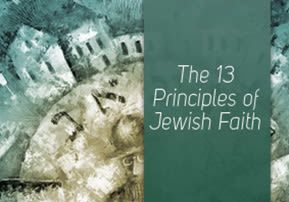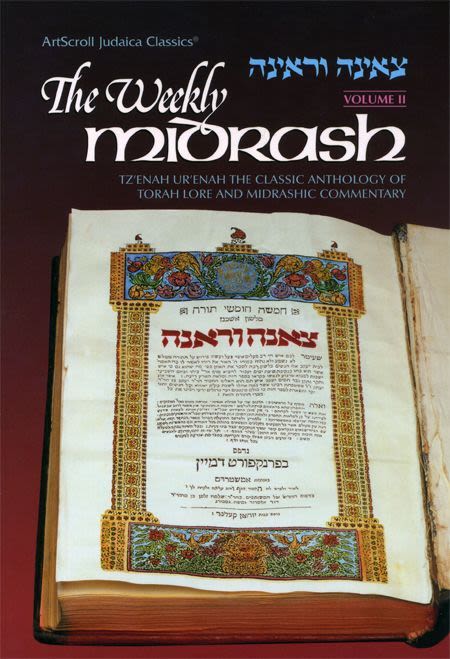
The 13 Principles of Jewish Faith
What exactly does faith in God include? What are the articles or principles of faith as delineated by the Torah? The Rambam tells us...

As stressed in traditional Jewish writings, the core of all religious practice and the principle underlying all Divine worship is faith. As explained in Kabbalah, faith is the highest power of the soul, lying well beyond the reach of the rational mind, floating, as it were, above comprehension.
Furthermore, it is common to find people that perform religious commandments for a variety of reasons other than their belief in God. It may be that they do so because of tradition (as children they were raised with these practices), because of collective cultural values (their society prescribes it), or even just to alleviate social pressure (their peers would not associate with them if they did not), all without believing that God exists or that He commanded them to perform these acts.
The Thirteen Principles of Jewish Faith
Indeed, talking of faith in God is quite vague. What exactly does faith in God include? What are the articles or principles of faith as delineated by the Torah? And, are they different for Jews and for non-Jews?
Though faith is a super-rational faculty, and therefore not normally subject to translation into a limited set of logical ordered principles, about 850 years ago, Maimonides (Hagaon Harav Moshe ben Maimon or “Rambam”) —arguably the greatest authority on Jewish law and Torah thought—compiled a list of 13 principles of Jewish faith. They are:
- God is the Creator and is responsible for all that happens.
- God is One
- God is not corporeal.
- God is non-temporal.
- God alone should be worshiped.
- Prophecy is true.
- The prophecy of Moses is primary and true.
- The Torah is complete
- The Torah is eternal.
- There is Divine Providence.
- God gives reward and punishment
- The Messiah will arrive
- God will resurrect the dead
As argued by later authorities, Maimonides 13 principles all stem from 3 more general principles:
1. Faith in the Oneness and Singularity of the Almighty, out of which stem the first through the fifth principles;
2. Faith in the Torah’s universal and everlasting verity as the expression of God’s Will, out of which stem the sixth through the ninth principles; and,
3. Faith in reward and punishment based on each individual’s conduct, from which stem the tenth through the thirteenth principles.
Of course, these three principles themselves are all an elaboration of the Torah’s all inclusive expression of faith in the absolute Oneness of God: “Hear O’ Israel, God is our God, God is One.”
Covenant Numbers
 So, we now have that the most general principle of faith in the absolute Oneness of God divides into three more specific principles, which in turn divide into the thirteen principles listed by Maimonides. This numerical progression from 1 to 3 to 13 is part of a mystical series of numbers that is based in the Torah’s oral tradition regarding the word “covenant” as it appears in the Written Torah. For this reason the numbers in this mystical series are known as “covenant numbers.”
So, we now have that the most general principle of faith in the absolute Oneness of God divides into three more specific principles, which in turn divide into the thirteen principles listed by Maimonides. This numerical progression from 1 to 3 to 13 is part of a mystical series of numbers that is based in the Torah’s oral tradition regarding the word “covenant” as it appears in the Written Torah. For this reason the numbers in this mystical series are known as “covenant numbers.”
The traditional source for the series of covenant numbers is found in a Mishnah that states: “Circumcision is great, for thirteen covenants were made on it.” As explained by the Talmudic commentaries this statement refers to 13 instances of the word “covenant” (in its different grammatical forms) found in the verses that describe how God commanded Abraham to perform circumcision. That circumcision in this Mishnah is described as “great” is not only qualitative but also quantitative. Hence, the Mishnah, as explained by the commentaries, is noting that the word “covenant” appears in these verses more times than it does in reference to other covenants chronicled in the Torah. Specifically, the commentaries explain that the Mishnah is comparing the thirteen times that the word “covenant” appears in reference to circumcision, the covenant made between God and Abraham, to the three times that it appears in reference to the covenant made between God and the Jewish people with the giving of the Torah. It is also comparing the thirteen “covenants” of circumcision to the single “covenant” appearing in the verses describing how God promised the Land of Canaan to Abraham.
* * *
Reprinted with courtesy of www.inner.org











9/17/2017
tefillin
I am going to were tifillin to become closer to g_d. I m a 60 year old women .
9/17/2017
I am going to were tifillin to become closer to g_d. I m a 60 year old women .